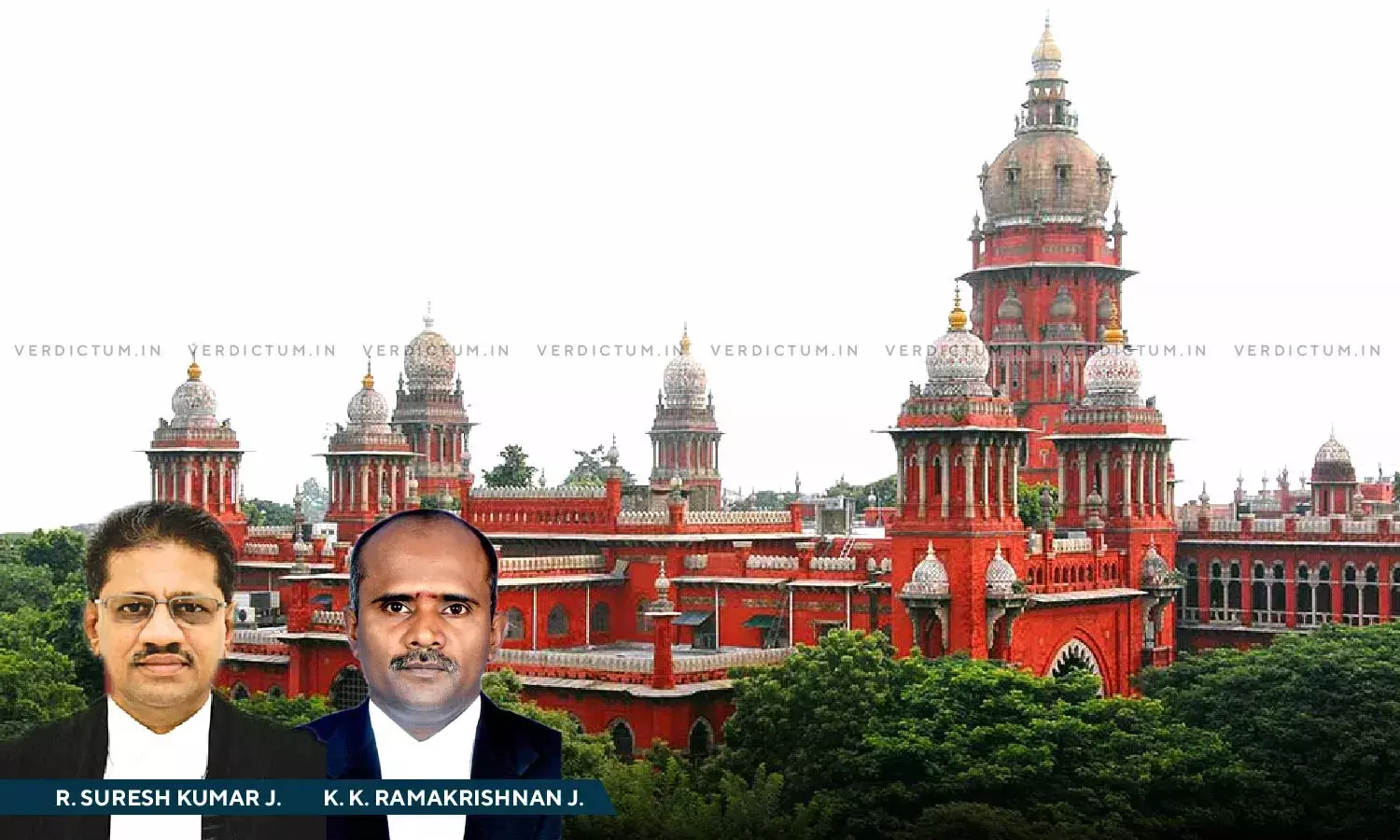Propensity Of Act Alone Is Enough To Invoke Detention Order: Madras HC In A Case Of Sexual Assault Of Minor

The Madras High Court has held that an act of committing a penetrative sexual assault upon the partially mentally retarded and physically challenged minor victim girl in the premises of the Church itself has its own propensity to demand the invocation of the Tamil Nadu Act 14 of 1982 against the detenu.
The Division Bench of Justice R. Suresh Kumar and Justice K. K. Ramakrishnan elucidated as to how the insatiable lust for sex of the detenu led to the indulgence of penetrative sexual assault on the partially mentally retarded and physically challenged minor victim girl, as a treasury guard become a robber, has shocked the judicial conscience.
Advocate V. Thirumal appeared for the Petitioner and Advocate A. Thiruvadikumar appeared for the Respondents.
In this case, a Habeas Corpus Petition was filed by the wife of Josephraja, who was a Pastor at the King of King Church in North Malayandipatti. The accused Josephraja was accused of committing penetrative sexual assault on a physically challenged and partially mentally retarded seventeen-year-old girl in the church premises. The police registered the case under Sections 5(k), 5(f) r/w 6 of the POCSO Act, 2012. This led to the issuance of a detention order under the Tamil Nadu Prevention of Dangerous Activities of Bootleggers, Drug Offenders, Goondas, Immoral Traffic Offenders, Forest Offenders, Sand Offenders, Slum-Grabbers and Video Pirates Act, 1982, branding accused as a ‘sexual offender’. Challenging the same, the petitioner approached the High Court.
“The detenu in the present case was a Pastor and his responsibility towards the entire public was placed on the high pedestrian than the ordinary man. He is dutybound to take care of every member of the Church without any greed of sex. But, it was alleged that he has committed offence under the POCSO Act, more particularly, he was alleged to be committed the penetrative sexual assault on the partially mentally retarded and physically challenged minor victim girl”, noted the Bench, while stating that this act of the Pastor/detenu created panic in the locality and also the mind of the persons attending the prayer along with their female children.
While explaining that the preventive detention jurisdiction is suspicion jurisdiction and the authority is only required to act on suspicion and reasonability, the High Court accepted the fact that the detaining authority in the present case had passed the detention order on the notion that the detenue would file bail petition in near future and if he comes out on bail, he would act prejudicial to the public order.
While answering the contention of non-serving of legible AR copy, the High Court clarified that the AR copy is neither relied document nor necessary document for the detenu to submit the representation before the competent authority and hence, non-serving of the legible AR copy has no impact in passing the detention order.
On the issue of similar case particulars, the Division Bench took support from the decision in case of Mariappan v. The District Collector and District Magistrate, Tirunelveli [MANU/TN/1338/2014] and explained that the POCSO offence in the similar case is similar to the offence in the present case and hence, the detaining authority is very well placed the application of mind to the said bail order.
Further, relying on the decision of the Supreme Court in case of P. Suganthi v. State of Tamil Nadu rep., by the Additional Chief Secretary to Government and Others [2020 SCC Online Mad 17237], Justice Ramakrishnan observed that the delay in passing the detention order from the date of arrest is not ipso facto to quash the detention order when the explanation on the side of the detaining authority is acceptable and the delay is reasonable one.
Neither in the Constitution nor in Act 14 of 1982, there is no time limit fixed to invoke the detention order. Even after being released on bail, a detention order can be passed, added the Court.
Therefore, while relying on the decision of the Constitution Bench of the Apex Court in case of Attorney General for India and Others vs. Amratlal Prajivandas and Others [1994 (5) SCC 54], the Madras HC reiterated that the detaining authority rightly passed the detention order against the detenu as a radical treatment.
Accordingly, the Court dismissed the Petition.

